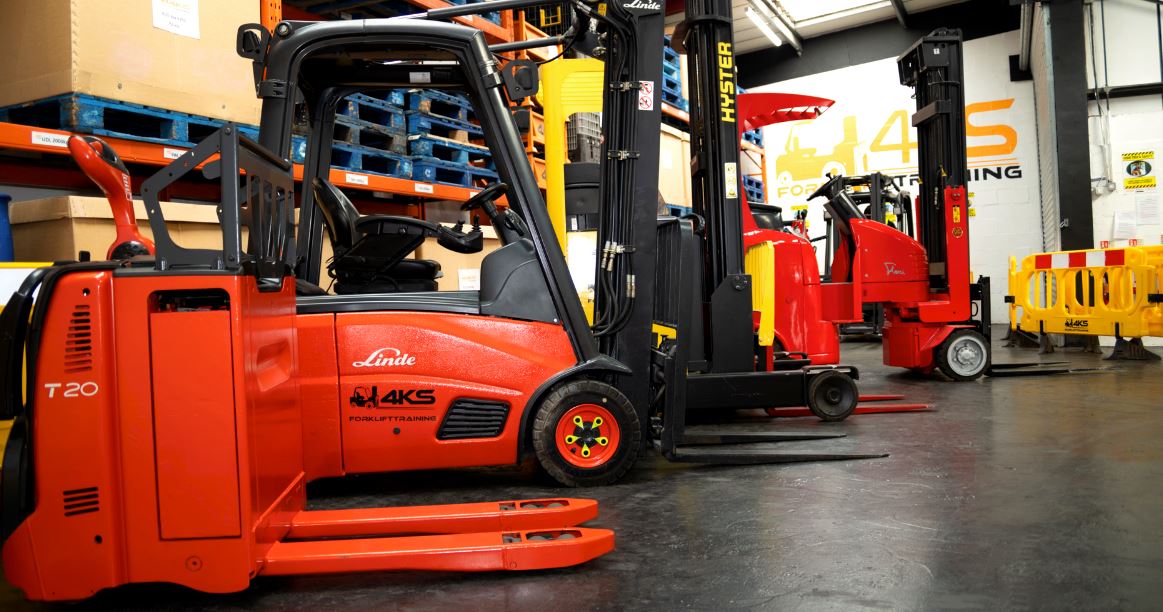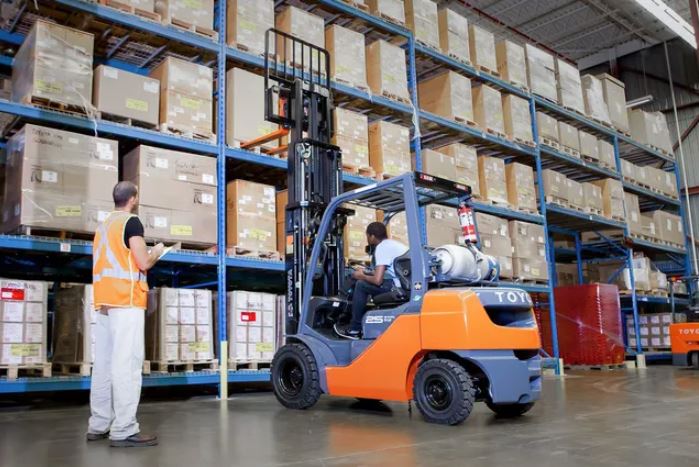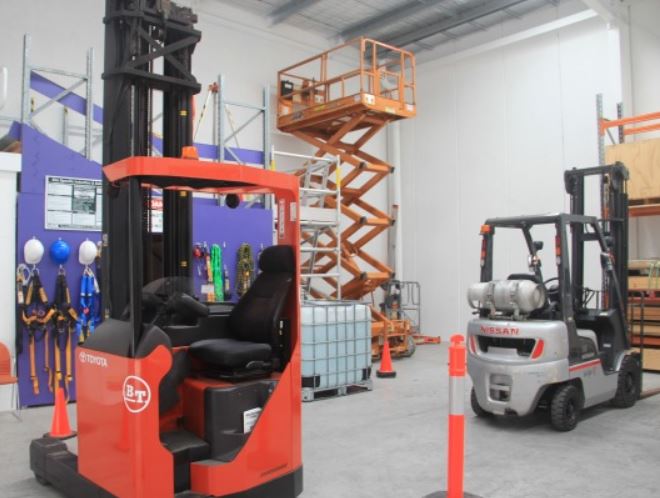Master Your Skills: Forklift Licence Training in Australia Unveiled

Are you curious about what it takes to obtain a forklift licence in Australia? Look no further!
This comprehensive guide will uncover everything you need to know about forklift licence training, from the requirements to the benefits.
Whether you’re looking to enhance your job prospects, improve your safety skills, or increase your earning potential, this article will provide all the information you need to master your forklift skills.
So, let’s dive in and explore the world of forklift licence training in Australia!
What Is a Forklift Licence?
A forklift licence is an official certification that allows individuals to operate legally in a workplace or industrial setting. It signifies that the holder has met the necessary training requirements and demonstrated competency in handling forklift equipment.
Having a forklift licence showcases one’s ability to safely manoeuvre heavy machinery and carries significant legal implications. In many jurisdictions, it is a legal requirement for individuals operating forklifts to hold a valid licence to ensure workplace safety and compliance with regulations.
Beyond the legal aspect, holding a forklift licence comes with responsibilities such as conducting daily inspections, properly loading and unloading materials, and following established safety protocols. Possessing a forklift licence grants individuals the privilege to take on roles that require forklift operation, opening up opportunities for career advancement within the industrial sector.
Why Do You Need a Forklift Licence?
Obtaining a forklift licence is crucial for ensuring workplace safety and compliance with regulations set forth by workplace health and safety authorities such as OSHA. It demonstrates that the operator has undergone proper training and is qualified to handle forklift machinery.
Possessing a forklift licence signifies that the individual understands the safety procedures required for operating the equipment, reducing the risk of accidents and injuries in the workplace. Employers must ensure that all forklift operators possess valid licences to maintain a safe working environment and prevent potential hazards. By complying with these regulations, companies can significantly lower the likelihood of costly workplace incidents and promote a culture of competence and accountability among their employees.
What Are the Requirements for Forklift Licence Training in Australia?
In Australia, individuals seeking forklift licence training must meet specific requirements such as age criteria, physical fitness standards, and language proficiency. These prerequisites ensure that trainees are adequately prepared for the responsibilities of forklift operation.
Candidates must demonstrate competency in operating a forklift safely and efficiently, as outlined by the Australian training standards. This includes understanding and practising proper loading and unloading techniques, manoeuvring in confined spaces, and conducting pre-operational checks.
Language skills are vital to effectively communicating with colleagues and understanding workplace safety instructions. Physical fitness is paramount for safely handling the physical demands of operating a forklift, which requires strength, coordination, and agility.
Both theoretical and practical competency assessments are conducted to evaluate the trainee’s understanding of forklift operation and workplace health and safety protocols.
Age Requirement
The age requirement for forklift licence training typically stipulates that candidates must be 18 to undergo the necessary courses and assessments. This is a fundamental criterion to ensure that individuals possess the maturity and legal capacity to operate heavy machinery safely.
This specific age threshold is based on the fact that operating a forklift demands a certain level of responsibility and decision-making abilities. Younger individuals may lack the requisite experience and maturity to handle the potential risks involved in handling such equipment.
By setting the age limit at 18, regulatory bodies aim to prioritise safety in the workplace and reduce the likelihood of accidents caused by incompetence or recklessness. Adhering to these age restrictions also helps organisations maintain compliance with legal regulations and industry standards, thereby safeguarding both employees and the overall operational environment.
Physical Fitness
Physical fitness is a crucial requirement for forklift licence training as it ensures that operators have the strength and endurance to handle the physical demands of operating heavy machinery. Candidates must demonstrate the ability to perform tasks safely without compromising their well-being.
Many training programmes for forklift operators assess physical fitness through specific tests such as lifting weights, carrying loads, and manoeuvring through obstacle courses. These assessments evaluate an individual’s overall physical capability and ensure they can respond effectively in various workplace scenarios.
Physical fitness contributes to improved alertness, reaction time, and overall safety awareness, which operators must demonstrate while operating forklifts in a busy industrial setting.
Language and Literacy Skills
Language and literacy skills are essential for forklift licence training to ensure operators can understand safety procedures and equipment manuals and communicate effectively in the workplace. Proficiency in the language used for training materials is paramount.
A solid grasp of the language is crucial, as operators must interpret warning signs, understand written instructions, and effectively communicate with colleagues to prevent accidents.
Language skills play a fundamental role in maintaining a secure work environment, whether it’s identifying hazards, following workplace protocols, or participating in safety briefings.
Comprehension skills are essential for operators to understand the different modules of forklift licence training, ranging from practical demonstrations to theoretical concepts, ensuring a well-rounded education that promotes safety and efficiency in handling forklift operations.
Pre-Course Assessment
A pre-course assessment is a standard procedure in forklift licence training. It evaluates candidates’ readiness and knowledge before commencing the training programme. This assessment helps trainers tailor the course to meet each trainee’s specific needs.

By conducting these assessments, trainers can identify areas where individual trainees may require additional support or instruction, thus ensuring a more personalised learning experience. The evaluation methods used in these assessments may include written tests, practical demonstrations, and observation of the candidate’s skills in handling forklift equipment. Based on the outcomes of these assessments, the training curriculum can be adjusted to address gaps in knowledge or skills, ultimately leading to a more effective and comprehensive training programme that aligns with competency assessment standards and regulatory compliance requirements.
What Does Forklift Licence Training Involve?
Forklift licence training comprises theoretical instruction, practical hands-on training, and assessments to ensure operators have a comprehensive understanding of forklift operations and demonstrate competency in real-world scenarios.
Theory sessions in forklift licence training cover essential topics such as safety protocols, equipment maintenance, and load handling techniques. These classes typically involve classroom lectures, multimedia presentations, and interactive discussions to educate operators on the theoretical aspects of forklift operation.
Practical exercises, on the other hand, allow trainees to apply their knowledge in controlled environments. Operators learn how to manoeuvre the forklift, stack and unstack loads, and navigate obstacles, all under the supervision of experienced instructors.
Evaluation procedures often include written tests, hands-on demonstrations, and simulated scenarios to assess operator competency.
Theory Training
Theory training in licence courses covers essential topics such as forklift types, hydraulic systems, and industry-specific regulations. It equips operators with the knowledge needed to understand the technical aspects of forklift operation.
This theoretical aspect of forklift licence training also delves into safety protocols, load capacities, and proper handling techniques. Understanding the principles behind weight distribution, centre of gravity, and stability is crucial in preventing accidents and maintaining a secure work environment.
Trainees learn about HSE guidelines, workplace hazards, and emergency procedures to ensure compliance with stringent industry standards. By grasping these key concepts, forklift operators can navigate challenges confidently and prioritise safety in their daily tasks.
Practical Training
Practical training involves hands-on experience operating forklift equipment under the guidance of an experienced trainer. Trainees learn essential skills such as safe manoeuvring, load securing, and forklift operation techniques.
They participate in exercises that simulate real-life scenarios, focusing on precision and safety. These sessions include practising pallet stacking, navigating tight spaces, and conducting pre-operational safety checks.
Trainees develop muscle memory through repeated practice for effectively handling loads and enhanced spatial awareness. They are trained in emergency response procedures, including what to do in case of a tipping hazard or sudden equipment malfunction.
This comprehensive approach ensures trainees have the skills and knowledge to operate forklifts safely and efficiently in diverse workplace environments.
Assessment
Assessment in forklift licence training includes both theoretical exams and practical evaluations to gauge operators’ understanding and proficiency. It ensures operators meet the required standards for safe and competent forklift operation.
Theoretical exams assess operators’ knowledge of forklift operation procedures, safety guidelines, and relevant regulations. On the other hand, practical evaluations involve tasks such as manoeuvring the forklift through obstacles, loading and unloading materials, and demonstrating control over the equipment.
Evaluation criteria often focus on factors like accuracy, efficiency, safety practices, and adherence to operational protocols. Completing theoretical and practical assessments leads to certification, validating an operator’s competency to operate a forklift safely and effectively within legal requirements.
How Long Does Forklift Licence Training Take?
The duration of forklift licence training can vary depending on the training provider and the specific course structure. Generally, it can range from a few days to several weeks, encompassing theoretical and practical components.
This variability in training duration is influenced by factors such as the trainee’s prior experience, the complexity of the forklift operations covered in the course, and the frequency of training sessions.
Some training programmes offer accelerated options for experienced individuals, allowing them to complete the training in a shorter period. On the other hand, beginners or those with limited prior knowledge may opt for more extended courses to ensure thorough understanding and proficiency.
Continuous education and skill development are also encouraged in the forklift industry. Advanced courses are available for individuals looking to enhance their expertise and pursue specialised roles within the field.
How Much Does Forklift Licence Training Cost?
The cost of forklift licence training can vary based on the training provider, course duration, and location. Generally, the training fees cover the cost of instruction, materials, assessments, and certification.
Training providers set their fees based on factors such as the quality of training, class sizes, and equipment used. Additional expenses may include transportation costs, safety equipment requirements like helmets and gloves, and retesting fees.
Some courses offer financial assistance options or payment plans to help students manage the cost, while others may include extras like job placement assistance. It’s essential for individuals seeking forklift training to research various providers and compare offerings to find the best fit for their budget and career goals.
What Are the Benefits of Forklift Licence Training?
Forklift license training offers a range of benefits, including increased job opportunities, improved safety skills, and the potential for higher pay in industrial and warehouse settings. It enhances operator competency and workplace efficiency.

Obtaining a forklift license opens doors for diverse job roles in logistics, manufacturing, and distribution sectors and equips individuals with the necessary skills to operate heavy machinery safely. With the …
